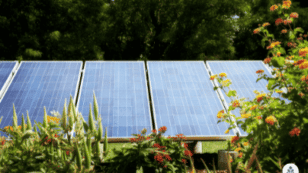
Is Solar Worth It in New Hampshire? (2024 Homeowner's Guide)
Here’s a quick overview of solar viability in New Hampshire:
- New Hampshire ranks 41st in the country for solar installations.*
- The average electricity rate 29.28 cents per kilowatt-hour.**
- The average solar payback period is 8 years.***
- Homeowners are eligible for the Residential Small Renewable Energy Rebate Program and the federal solar investment tax credit (ITC).
- The average homeowner saves $57,051 over the lifetime of their solar system.***
*According to the Solar Energy Industries Association.1
**Data from the Energy Information Administration.2
***Calculated assuming the system is purchased in cash.
Each product and or company featured here has been independently selected by the writer. You can learn more about our review methodology here. If you make a purchase using the links included, we may earn commission.
New Hampshire ranks 41st in the country for solar panel installations, and when residents find out that the average price of solar panels in NH is far higher than the national average on a per-watt basis, many wonder if solar is a worthwhile investment. For most New Hampshire residents, solar is an excellent option, but it’s not ideal for everyone and won’t save every homeowner money.
Below, you’ll find information on the metrics you can use to figure out if solar is a good investment for your home. We’ll also discuss the benefits of going solar and some important considerations you should make before you make any decisions.
To speak with an EcoWatch-vetted professional who can help you determine whether solar is worth it for your New Hampshire home, follow the links below

All Energy Solar
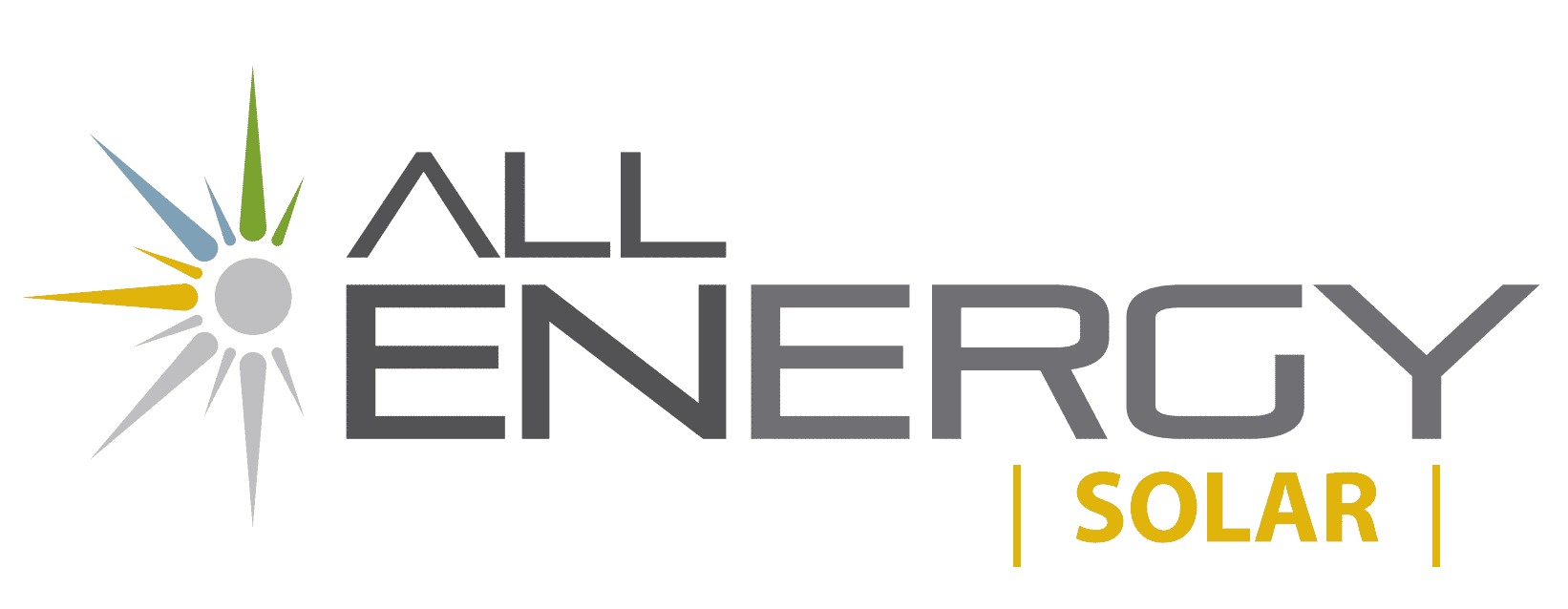
Regional Service
Average cost
Pros
- Full-service home energy solutions
- Excellent reputation
- NABCEP-certified technicians
Cons
- Expensive

ReVision Energy
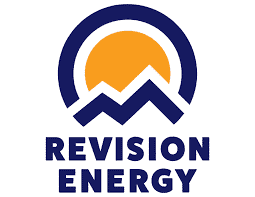
Regional Service
Average cost
Pros
- Comprehensive service offerings
- Certified B Corp
- Many years of experience
Cons
- Relatively short workmanship warranty
- No leases or PPAs

New England Clean Energy

Regional Service
Average cost
Pros
- Many financing options
- Competitive pricing
- Great warranty coverage
Cons
- Limited brands of solar equipment available
- Slightly limited service offerings
Watch Below: How Much Does It Cost to Go Solar in New Hampshire?
How to Figure Out if Solar Panels are Worth It in New Hampshire
Installing a solar energy system makes sense financially for most New Hampshirites, but it’s important to understand how to tell if it’s a good choice for you. Below are some of the metrics you can use to determine solar viability.
What’s Your Home Electricity Consumption?
First, you should take a look at your average monthly energy consumption. Solar panels provide savings by reducing your electric bills, so the more you spend on energy every month, the more you’ll have to reduce and save by going solar.
You can check your past electric bills for your average consumption. Generally speaking, solar panels are only worth the investment if you use more than 500 kilowatt-hours per month.
The average consumption in NH is 630 kWh monthly, which is below the national average but above the benchmark for solar viability. As such, most New Hampshire residents will find that going solar is profitable. In fact, consumption rates below the 500-kWh mark still leave room for massive savings in NH, given the high electricity rates in the Granite State.
How Much Is It To Go Solar in New Hampshire?
The price of solar panels in New Hampshire can vary a bit, but the average per-watt price is around $3.77, making NH one of the more expensive states for solar equipment.
The average system size required to offset energy consumption in the area is much smaller than the national average at just 6.5 kW, so the total price of solar is just $17,154 after the federal tax credit, which is below what most US residents pay.
Solar panels are most valuable in areas where the energy prices or energy consumption is high. Although consumption rates in NH are below average, electricity rates are higher than in most states at 29.28 per kWh.
As such, the potential for solar savings in New Hampshire is greater than in most areas throughout the country.
What’s the Payback Period for Solar in New Hampshire?
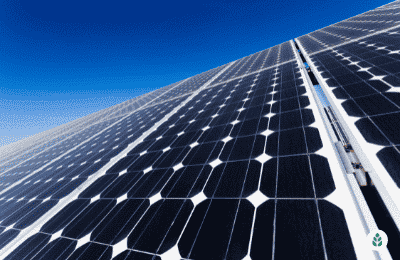
The average solar payback period in New Hampshire is just 8 years, which is below the national average of 12 years. Most NH homeowners will have an estimated payback period of between 6 and 12 years.
If your time frame estimate is longer than 12 years, it will take you longer to recuperate your investment, and your returns will be lower than average. However, you’re still expected to save money as long as your payback period is under 25 years.
What Are Average Buy-Back Rates in New Hampshire?
Net metering is one of the most appealing solar incentives, and it’s now mandated in most states. Net metering lets energy pass back and forth between the electrical grid and your home, and your electric bill gets credited for all excess energy you produce and send to your utility company.
The Public Utilities Commission (PUC) in NH does not mandate net metering, but some electric companies — including Eversource, New Hampshire Electric Cooperative, Unitil, and Liberty Utilities — choose to offer net metering privately. Some net metering policies — specifically Eversource’s, which is the best in the state — will allow you to eliminate your electric bills entirely, while others might not.
Customers who have suboptimal net metering programs or none available to them at all will likely have to install a solar battery in order to maximize savings.
How Much Sun Does Your Roof Receive?
Areas that receive abundant sun are best suited for solar conversion because your panels depend on sunlight to produce energy and save you money. Despite its northern location, New Hampshire receives around 198 sunny days per year, which is only slightly below the national average of 205.
Sunlight availability in the Granite State makes solar panels profitable for most. However, there are some important individual factors to consider.
Shading on your roof from trees and buildings, for example, can limit energy production and make your panels less profitable. The direction your roof faces can also make a difference, with south-facing roofs being the best for solar in the US, and west-facing roofs being acceptable in many cases.
What’s the Outlook on Solar in New Hampshire?
New Hampshire consistently ranks as one of the most eco-friendly states in the country, so it’s a bit surprising that it ranks 40th in the nation for solar adoption.3 The slow move to solar is likely due to the price per watt for solar equipment and the fact that the largest nuclear power plant in New England is located within state lines.
Although solar adoption has been a bit slow, the state does have a Renewable Portfolio Standard (RPS) goal of producing more than 25% of its energy from renewable energy sources.4
This goal, combined with the fact that residential and commercial solar installations have increased significantly in popularity over the past decade, suggests that the solar market will continue to grow in New Hampshire and could become the state’s primary source of clean energy.
Benefits of Solar Energy in New Hampshire
Homeowners who do decide to install solar panels in New Hampshire will be met with numerous benefits that are difficult to pass up. We’ll discuss some of the most appealing solar benefits in NH below.
Electricity Bill Savings
Most of the financial benefit you’ll get from going solar is from the money you’ll save on your electric bills. Each month, your solar panels will produce all or some of the electricity your home uses, which will reduce your power bill.
Since New Hampshirites spend an average of $184.46 per month on electricity, the maximum potential savings is around $2,213 per year. Over time, these savings are expected to offset your solar array expense entirely and then provide an additional $57,051 in New Hampshire.
The lifetime savings afforded by solar in NH is higher than average in the US because of the unusually high electricity rates. Your savings could be even higher if the energy rates continue to go up in the future, which they are expected to do.
Lower Taxes & Access to Other Incentives
New Hampshire is certainly not the most solar-friendly state, but there are still some federal and state solar incentives that make going solar more affordable and more appealing.
One of the most promising solar incentives is the federal tax credit, commonly called the ITC. This is a credit to your income taxes for 30% of your total solar panel system expense, which, in New Hampshire, averages around $7,352.
We’ll include some information on some additional solar incentives in New Hampshire below:
- Residential Small Renewable Energy Rebate Program: This incentive provides a $200 rebate per kW you install, up to 30% of the system expense or $1,000, whichever is less.
- Net Metering: Some utility companies offer net metering, which lets you sell excess energy your panels produce to your electric company for a credit to your bill.
- Eversource ConnectedSolutions Energy Storage Rebate: Eversource compensates its customers who have solar storage solutions if they allow the utility provider to use the storage during peak hours.
- Property Tax Exemption for Renewable Energy and Electrical Energy Storage: This is a property tax exemption that prevents your property taxes from going up as a result of installing solar panels.
Home Resale Value Increase
One of the greatest benefits of going solar and one that many homeowners overlook is that solar panels boost property value. Estimates from Zillow suggest that the average home will increase in value by around 4.1% from solar conversion.5 In New Hampshire, where the average home value is around $447,215, that means going solar will add an average of $18,335 to your home’s worth. This is one of several solar benefits that aren’t available to homeowners who lease their panels. You’ll have to use a cash purchase or solar panel financing options if you want your solar panels to add value to your home.
Clean, Renewable Energy
Many of the benefits of going solar are financial, but there are some environmental upsides to installing solar panels as well. Namely, you’ll be responsible for less fossil fuel consumption via your utility company, which means you’ll be reducing your carbon footprint and how much pollution your home is responsible for. Installing solar panels also means you’ll be increasing your energy independence, which frees you from the expected hikes in electricity rates in the future.
What to Look Out For When Considering Solar in New Hampshire
In addition to confirming that your home is a good fit for solar, there are several considerations you’ll want to make to ensure you get the most out of your solar PV system and your solar company. We’ll discuss some other things you should be thinking about below.
Upfront Fees
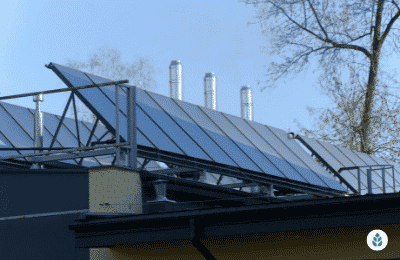
Payback Period
Your solar panel payback period is a great way to estimate how quickly your panels will pay themselves off and also your overall return on investment. Most New Hampshire homeowners will have a payback period between 6 and 12 years. If yours is beyond 12 years, you’ll still likely save quite a bit of money — given the high electric prices in NH — but your overall savings will be below average.
Net Metering Policies in New Hampshire
Net metering is not mandated in New Hampshire, so whether you can eliminate your electric bills or just reduce them will depend largely on your utility provider. You should check with your electric company for more information before you commit to anything. If you have a suboptimal net metering policy or none at all, you might consider installing a solar battery to maximize your energy savings. This will increase your total fees, but batteries often pay for themselves in areas like New Hampshire, where electricity is so expensive.
Pending Policies & Changes to Incentives
Few things in the solar industry are set in stone, so you should be prepared for changes to solar policies, incentives and rebates. Everything mentioned above is subject to change, new incentives could pop up and existing ones could disappear. It’s usually not a good idea to wait for better incentives to come along, but you should stay up to date on changes and do some updated research before you sign anything.
Weather & Climate in New Hampshire
Solar panels are most effective near the equator, where the intense sunlight is great for maximum power production. While New Hampshire is located in the northern region of the country, it still receives fewer cloudy days than sunny ones. The generally sunny weather makes it a decent area for solar conversion, despite its geographical location. Many New Hampshire residents worry about the above-average snowfall in the area and wonder if snow coverage will reduce panel efficiency. Snow coverage will effectively render your panels useless, but, generally speaking, there isn’t enough snow to make solar a poor investment. The snow will also naturally keep the panels clean, which will improve sunlight absorption and, therefore, efficiency for those sunny days.
Companies Pushing Solar Leases or PPAs
Finally, you should be keenly aware that not every solar panel installation company is the same, and choosing the right one can make an enormous difference in your overall experience. Generally speaking, you should avoid solar installers that advertise “free panels” or use other marketing tactics to push solar leases. Solar leases are far less appealing than solar loans and are no longer more accessible in all cases. Leases don’t let you take the federal tax credit, they don’t bump up your home value and they provide a much lower ROI.
Wrap Up: Is Solar Worth it in New Hampshire?
Going solar is a worthwhile endeavor for most New Hampshire residents. In fact, installing a solar energy system typically pays for itself and then provides an additional $57,051 in energy savings in the area. However, this isn’t the case for every NH resident, and your first step before installing solar should be to confirm that your home is a good candidate for solar energy. Some things to remember to consider include your monthly energy bills, the size of the solar power system you’d need for your home, the direction your roof faces, shading on your property, your utility company’s net metering policy and more. Given how many factors there are to consider, we recommend seeking guidance from a reputable solar installer before signing anything.
See also: Calculate the costs and savings you can get from installing solar panels
Read More About Going Solar
Frequently Asked Questions
We get questions from New Hampshire residents frequently about how to tell if solar is a good investment for them. Below are some of the questions we see most often, along with our responses.
If you have specific questions that aren’t answered here, reach out to our team of solar experts at solar@ecowatch.com.
Most homeowners in New Hampshire will have a solar panel payback period between 6 and 12 years. The average of 8 years is well below the national average of 12. However, your payback timeline could fall outside of this range, depending on several important factors. Some of the criteria that can change your payback period include the amount of sun your roof gets, the direction your roof faces, your monthly energy consumption and more. We recommend having an experienced solar installer assess your home and estimate your payback period for you.
Most of the time, yes, solar panels will save you quite a bit of money in New Hampshire. Solar PV equipment converts sunlight to electricity, so every kilowatt-hour your system produces will save you an average of 29.28 cents. The typical annual savings for solar customers who have a good net metering program or a solar battery is $2,213. After New Hampshire solar panels pay for themselves, they will provide around $57,051 in additional energy savings, on average.
Yes, solar panels will cause your property value to go up in New Hampshire. Estimates from Zillow suggest that the average value increase in New Hampshire is 4.1%, or $18,335. It’s important to note that this value bump is only expected if you purchase or finance your solar panels.
Yes, permits are a requirement for solar panel installation in New Hampshire. In most cases, your solar installer will pull permits for you, include the price of the permits in your total system expense and close the permits out once the installation is completed.
You can install your own solar panels in New Hampshire, but it’s not recommended. You do stand to save some money on labor with a DIY panel installation, but you’ll also take on the risk of personal injury, property damage and poorly functioning photovoltaic equipment. It’s highly recommended that you instead have a professional and experienced solar installer handle the work for you.
Top Solar Installers in New Hampshire Cities
Comparing authorized solar partners
-
- Full-service home energy solutions
- Excellent reputation
- NABCEP-certified technicians
- Expensive
A+Outstanding Regional Installer
Having trouble deciding? Click below and use our process to receive multiple quotes instead:

 233k
233k  41k
41k  Subscribe
Subscribe 



